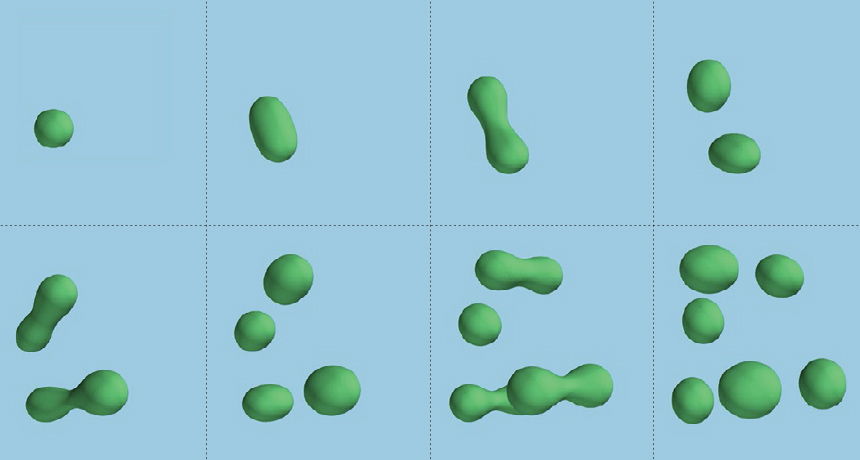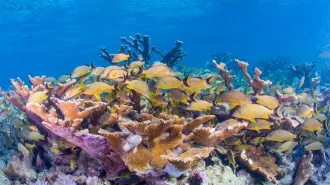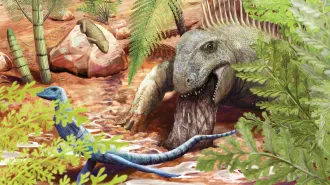Life on Earth may have begun as dividing droplets
Shape-shifting blobs of chemicals could split to reproduce, simulations show

DROPS DIVIDE Droplets of chemicals (green) within a primordial soup (blue) can elongate, split and replicate (top row, left to right), new simulations indicate. That process repeats (bottom row) to create new generations of droplets, in a process that mimics reproduction and could reveal the origins of life.
D. Zwicker et al/Nature Physics 2016







